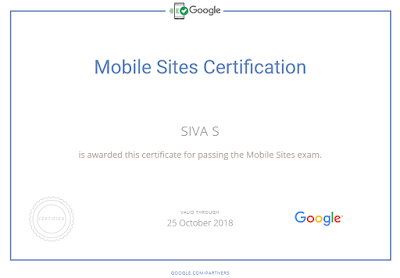The truth is that comparing to the past, the indexing process has became much faster. Nevertheless lots of webmasters still face indexing problems either when they launch a new website or when they add new pages. In this article we will discuss 5 simple SEO techniques that can help you speed up the indexation of your website.
1. Add links on high traffic websites
The best thing you can do in such situations is to increase the number of links that point to your homepage or to the page that you want to index. The number of incoming links and the PageRank of the domain, affect directly both the total number of indexed pages of the website and the speed of indexation.
As a result by adding links from high traffic websites you can reduce the indexing time. This is because the more links a page receives, the greater the probabilities are to be indexed. So if you face indexing problems make sure you add your link in your blog, post a thread in a relevant forum, write press releases or articles that contain the link and submit them to several websites. Additionally social media can be handy tools in such situation, despite the fact that in most of the cases their links are nofollowed. Have in mind that even if the major search engines claim that they do not follow the nofollowed links, experiments have shown that not only they do follow them but also that they index the pages faster (Note that the fact that they follow them does not mean that they pass any link juice to them).
Theoretically Search Engines are able to extract the links of a page and follow them without needing your help. Nevertheless it is highly recommended to use XML or HTML sitemaps since it is proven that they can help the indexation process. After creating the XML sitemaps make sure you submit them to the Webmaster Consoles of the various search engines and include them in robots.txt. So make sure you keep your sitemaps up-to-date and resubmit them when you have major changes in your website.
https://www.utechproducts.com/sitemaps/products1.xml
3. Work on your Link Structure
As we saw in previous articles, link structure is extremely important for SEO because it can affect your rankings, the PageRank distribution and the indexation. Thus if you face indexing problems check your link structure and ensure that the not-indexed pages are linked properly from webpages that are as close as possible to the root (homepage). Also make sure that your site does not have duplicate content problems that could affect both the number of pages that get indexed and the average crawl period.
A good method to achieve the faster indexation of a new page is to add a link directly from your homepage. Finally if you want to increase the number of indexed pages, make sure you have a tree-like link structure in your website and that your important pages are no more than 3 clicks away from the home page (Three-click rule).
4. Change the crawl rate
Another way to decrease the indexing time in Google is to change the crawl rate from the Google Webmaster Tools Console. Setting the crawl rate to “faster” will allow Googlebot to crawl more pages but unfortunately it will also increase the generated traffic on your server. Of course since the maximum allowed crawl rate that you can set is roughly 1 request every 3-4 seconds (actually 0.5 requests per second + 2 seconds pause between requests), this should not cause serious problems for your server.
5. Use the available tools
The major search engines provide various tools that can help you manage your website. Bing provides you with the Bing Toolbox, Google supports the Google Webmaster Tools and Yahoo offers the Yahoo Site Explorer. In all the above consoles you can manage the indexation settings of your website and your submitted sitemaps. Make sure that you use all of them and that you regularly monitor your websites for warnings and errors. Also resubmit or ping search engine sitemap services when you make a significant amount of changes on your website. A good tool that can help you speed up this pinging process is the Site Submitter, nevertheless it is highly recommended that you use also the official tools of every search engine.
If you follow all the above tips and you still face indexing problems then you should check whether your website is banned from the search engines, if it is developed with search engine friendly techniques, whether you have enough domain authority to index the particular amount of pages or if you have made a serious SEO mistake (for example block the search engines by using robots.txt or meta-robots etc). A good way to detect such mistakes is to use the Web SEO Analysis tool which provides detailed diagnostics. Finally most of the major search engines have special groups and forums where you can seek for help, so make sure you visit them and post your questions.


























